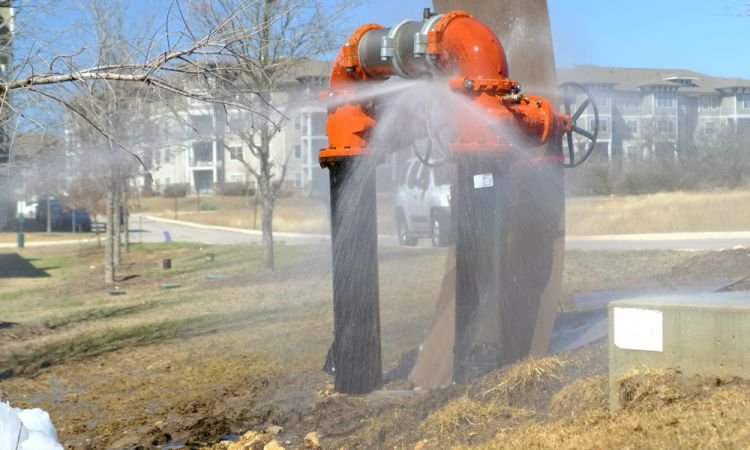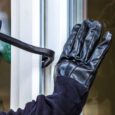 It’s common to run into emergency plumbing crises at some point in life. Whether it’s clogged drainage, a burst pipe, or a toilet leak, you must know how to respond to these inconvenient situations to ensure the comfort of your family at home.
It’s common to run into emergency plumbing crises at some point in life. Whether it’s clogged drainage, a burst pipe, or a toilet leak, you must know how to respond to these inconvenient situations to ensure the comfort of your family at home.
Plumbing troubles can instigate panic, but staying calm can help reduce damage to your home. Always remember to call a plumber when this emergency strikes. Your home will always be safe if you have a 24-hour emergency plumber who’s just a phone call away. Here’s a quick guide to what to do in a plumbing emergency.
1. Call An Emergency Plumber
The first thing you need to do in case of an emergency plumbing problem is to call your plumber as quickly as possible. Plumbing emergencies can hit at any time of the day, which is why you need a 24/7 emergency plumber you can rely on. Raeco Plumbing in the Central Coast or other services has after-hours emergency plumbers that solve your issues thoroughly and on time. Whether it’s a commercial or residential setting, they provide sustainable solutions.
As you wait for the plumber to come, it would be a great idea to wipe up all the overflowed water with towels or mops to reduce possible damage to your home. Protect your belongings by moving them away from the flooded area. Unplug all the electronics and place them in a safe, dry location.
Also, remember that emergency plumbers often provide a temporary solution. They may have to return later or the next day to offer a permanent solution. Notably, emergency plumbing services may be relatively more expensive than regular plumbing services. Thus, it’s best to have a regular plumbing maintenance routine instead of waiting until you run into emergencies.
2. Shut Off Your Water
For nearly all plumbing emergencies, it’s crucial that you shut off the immediate water source to prevent further damage to your home.
If the toilet has an issue, you can do this by turning off the faucet at the bottom or behind the toilet. You’ll need to shut off the main water gate for other emergencies, particularly massive ones. This water gate is often found outside your home near the exterior water meter. You can turn them off by rotating counterclockwise.
After you’ve shut off the main water gate, you may also want to switch on all the taps. It will help drain away all the remaining water in the pipes and divert excess water away from the place of the leakage.
If it’s a serious plumbing emergency, switching off your hot water system is also prudent. After you shut off your main water valve, ensure that you disconnect your heater. Switching it off will stop the heater from overheating or exploding, which might result in more plumbing problems.
In the case of a gas hot water system, be sure to switch off the gas first before you shut off the heater. Switching the heater off can rescue you from the extra costs of wanting an emergency hot water system repair in addition to the current issue.
3. Attend To The Small Leaks
If you find any plumbing leaks, try to manage them as quickly as possible by using pails to collect the dripping water. If you’re up to it, you can get the leaks while you wait for the plumber.
You could also use duct or plumbers’ tape to wrap around the bolt-hole leaks. It will help exert sufficient pressure on the pipe to prevent water from trickling out. If it gets more serious, you might require a more powerful tool, such as a sleeve clamp or C-clamp. But if you don’t have this heavy-duty equipment, it’d be best to enlist the help of a professional plumber.
4. Open Drains And Taps Outside
Even if you’ve already turned off your main water valve, there’s still running water in the channel system, which you’ll want to divert away from the house. You can achieve this by switching on the drains and taps outside the home.
However, if your drainage becomes clogged in the process, you can use your hand as a plunger to unblock the clog. If that doesn’t work out, it’d be wise to leave it until the plumber arrives to assess the issue.
5. Don’t Use Chemicals
You might attempt to use chemicals like drain cleaner to unclog drains, and avoiding such substances is recommended. Even though that will bail you out of the plumbing emergency, it won’t solve the issue. It can harm your plumbing pipes if you misuse it.
The plumber will not only fix your clogged drainage but also pinpoint the cause of the blockage. Identifying the root cause helps reduce the chances of the issue happening again.
Conclusion
Some plumbing emergencies are inevitable, but you can do a few things to reduce possible damage or the probability of one occurring. You can do many things to help safeguard your house, but there’s no guarantee that you’ll never have a plumbing emergency. If you encounter any plumbing problems you can’t address or a crisis that threatens the safety of your home, call a professional plumber for help.




